Роберт Бюттнер - Orphan's Destiny
Здесь есть возможность читать онлайн «Роберт Бюттнер - Orphan's Destiny» весь текст электронной книги совершенно бесплатно (целиком полную версию без сокращений). В некоторых случаях можно слушать аудио, скачать через торрент в формате fb2 и присутствует краткое содержание. Жанр: Боевая фантастика, на английском языке. Описание произведения, (предисловие) а так же отзывы посетителей доступны на портале библиотеки ЛибКат.
- Название:Orphan's Destiny
- Автор:
- Жанр:
- Год:неизвестен
- ISBN:нет данных
- Рейтинг книги:3 / 5. Голосов: 1
-
Избранное:Добавить в избранное
- Отзывы:
-
Ваша оценка:
- 60
- 1
- 2
- 3
- 4
- 5
Orphan's Destiny: краткое содержание, описание и аннотация
Предлагаем к чтению аннотацию, описание, краткое содержание или предисловие (зависит от того, что написал сам автор книги «Orphan's Destiny»). Если вы не нашли необходимую информацию о книге — напишите в комментариях, мы постараемся отыскать её.
Orphan's Destiny — читать онлайн бесплатно полную книгу (весь текст) целиком
Ниже представлен текст книги, разбитый по страницам. Система сохранения места последней прочитанной страницы, позволяет с удобством читать онлайн бесплатно книгу «Orphan's Destiny», без необходимости каждый раз заново искать на чём Вы остановились. Поставьте закладку, и сможете в любой момент перейти на страницу, на которой закончили чтение.
Интервал:
Закладка:
The main entry hall seemed smaller than my last visit, maybe because the walls were darker. I touched one. It had been repapered in emerald silk. The foyer remained big enough to host basketball playoffs.
Tanned, tuxedoed, gowned, and beautiful, Grodt’s guests clattered across marble tile and swirled up the curve of the grand staircase. Scents of perfume and passed hors d’oeuvres filled the air along with live music.
Evidently, Plasteel wasn’t the only material rationed by the War Procurement Act. Unlike the dresses I had left behind five years ago, the average female hem hovered two inches below paradise. Historically, hemlines rose during wartime. Material conservation, the chips said. But the Slug War had shrunk skirts to an endangered species. One more year of war and dresses would have gone the way of the trilobite. Perhaps war wasn’t completely hell.
I hadn’t seen an available woman out of uniform in five years. Across the room, a stunning brunette tugged her tiny skirt down as she prepared to settle onto a low sofa, a futile wave at modesty. I held my breath. In moments, I would learn whether fashion had also changed in women’s underwear.
A hand clapped my shoulder. “Jason!”
I exhaled and tore my eyes away from the tableau about to unfold on the sofa. “Mr. Grodt.”
He spun me toward him and clapped his other hand on my other shoulder, holding me at arm’s length. “Jason!”
“Mr. Grodt.”
This had all the earmarks of a boring conversation.
His grin melted and he brushed a curl off one ear. “My boy, I prayed to God each day for your safe return.”
A female server slithered up to us in the uniform of the day, four-inch heels and chrome-studded leather straps that covered only erectile tissue. She offered Prozac wafers and pills I didn’t recognize, mounded on a silver tray. I smiled and shook my head. Grodt dismissed her with a pat on her bare bottom.
I watched her slink into the crowd. Maybe she helped Grodt with his daily prayers.
“Was it terrible, Jason?” Grodt asked.
It was worse than that.
I sighed. How could I explain to someone like Grodt? Someone had written about it. Isolation. Self-doubt. Boredom punctuated by terror. The random chaos of battle. The bond between people who have no more in common than absolute responsibility for one another’s lives. I opened my mouth, “Well—”
He pressed the back of his hand to his forehead. “My God, say no more. I can imagine.” Staring over my shoulder, he raised his glass to someone.
“Jason, we need to talk.” He wrapped his arm around my neck and steered me through the crowd.
My heart sank. The brunette had folded herself demurely into sofa cushions and smiled up at some bald civilian in a raspberry-colored jumpsuit.
Grodt led me down a carpeted hallway that stretched so far that the band and crowd dwindled to a murmur. He stopped and pushed open twelve-foot-high double doors, grinning. “My library.”
His library actually contained one shelf of paper books, sealed under glass. All the remaining wall space, except for French doors that led to outdoor gardens, was hung with flat film posters, also behind glass, and theater-front holos of Grodt features.
Grodt International had made its share of tripe, period-piece musicals featuring women in turn-of-the-century thong swimsuits and men with tattoos. But Grodt International had also remade some highbrow stuff, Graphnov classics like Crusades of the LaserLeague.
Stepping to a sideboard, he poured an inch of amber liquid each into cut-crystal snifters as big as pineapples. He handed me one, then raised his in a toast. “To your return. Hell, to your future!”
I raised my snifter to my nose. Even a few days in hotel bars with Tway picking up the tab had educated me. It was cognac strong enough to clear my sinuses. “Sir?”
He motioned me to sit in one of a pair of wing chairs, then sat in the other. “Your story needs to be told.”
Exactly what I had tried to do when he had cut me off a few minutes ago.
He crossed his legs. “An autobiography, then a holo based on it. Ten-thousand-theater multinational release.”
I frowned. “I’m no author.” I leaned forward. “But I kept a diary! If you want to read it.”
He raised his palm. “Read it?” He fluttered his hand. “No, no. We hired a freelancer. He’s already writing your autobiography chip. Then my team adapts it to a holoplay.”
“But how do you know—?”
He waved me off, then held his hands at arm’s length and made a frame with thumbs and forefingers. He squinted through it and said, “Your face is going to be too familiar to the public. So we can’t get away with having you played by a hunk.”
“Thanks a lot, Mr. Grodt.”
The table phone glowed and he waved it on and whispered into it.
I looked out the window at a gardener. The man frowned as he trimmed Grodt’s roses with a laser wand. I shook my head. Nine thousand soldiers forever on Ganymede would have smilingly traded places with that gardener. “It seems too soon for a holo.”
“You’ll make a fortune.”
I already had enough to buy a car, if they ever started making them again. Bachelor officers’ quarters cost less than fertilizer for Grodt’s roses. “I don’t need a fortune. And I don’t want to make one off my dead buddies.”
Grodt sighed. “I expected something like this. You’ll get over it. I’ll keep the offer open. Until I find a more commercial project. Don’t agonize too long.”
I returned to Grodt’s party and ate everything that didn’t taste like a Tway protein bar. I washed it all down with beaucoup cognac. I didn’t find a woman to, uh, liaise with. Much later I learned that the only person I had screwed that night was me.
The morning after my last Grodt party, I got rocketed into space and landed on the moon.
This time, the morning after was calmer. I just got shot into the stratosphere at seven thousand miles per hour and landed in the Sahara Desert.
SEVENTEEN
MY RITZ SUITE WAS BIG ENOUGH for me, my hangover, and Jeeb. Most important, it had an old-fashioned security chain on the door, so Tway couldn’t barge in. But she could call, and then badger the hotel to activate the room phone’s emergency shriek when I ignored normal ringing.
On shriek twelve, I unwrapped the pillow from around my ears, waved the phone on, audio only, and croaked, “General Wander.”
“Are you packed?” Tway.
“Huh?”
“We leave this lobby for the Long Strip at Canaveral in twenty minutes.”
“I thought the Long Strip was just for Interceptor landings. And international Scramjets.”
The phone hissed.
One thing Ord and the Army had taught me was to never go to sleep unpacked, drunk or sober. I shaved, showered, and slid into a limo alongside Tway with two minutes to spare, bent under my overstuffed duffel, and a throbbing head just as swollen.
We rolled out into the smattering of cars that constituted post-war traffic and Tway turned to me. “You were at Aaron Grodt’s.”
My pale face and red eyes stared back at me as I gazed out the tinted window. “It shows, huh?”
“We just tracked your dogtag. I see you got zogged. Did you get laid?”
I shook my head. Slowly. “If it’s your business, no. Just propositioned by a fat man.”
She nodded. “Book deal?”
“How did you know? Chipbugging’s illegal, even on military personnel.”
“Curb your paranoia. Grodt called us and cleared an autobiography proposal before he talked to you. It’s good exposure and you get to keep the money.”
“I turned him down.”
Tway rolled her eyes. “Okay, give the money away. Altruism sells.”
“It’s still exploiting dead soldiers. No.” I faced the window, watching the ’burbs roll silently by until we cleared Canaveral’s gate.
Читать дальшеИнтервал:
Закладка:
Похожие книги на «Orphan's Destiny»
Представляем Вашему вниманию похожие книги на «Orphan's Destiny» списком для выбора. Мы отобрали схожую по названию и смыслу литературу в надежде предоставить читателям больше вариантов отыскать новые, интересные, ещё непрочитанные произведения.
Обсуждение, отзывы о книге «Orphan's Destiny» и просто собственные мнения читателей. Оставьте ваши комментарии, напишите, что Вы думаете о произведении, его смысле или главных героях. Укажите что конкретно понравилось, а что нет, и почему Вы так считаете.

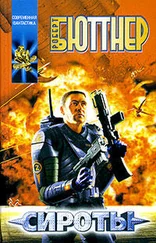

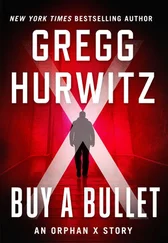
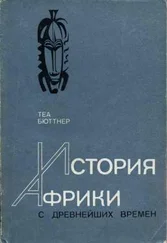
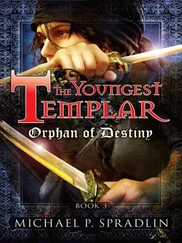
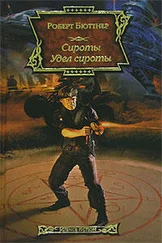
![Дэн Бюттнер - Где живет счастье [Правила жизни самых счастливых людей планеты] [litres]](/books/395574/den-byuttner-gde-zhivet-schaste-pravila-zhizni-samyh-thumb.webp)



